
news
Inchainge Connect Educator Conference 2022
Like a blast from the past, we returned this year with Inchainge Connect Educator Conference 2022! Following the theme ‘The EdTech Revolution in Higher Education – Accelerating Value Chain Excellence & a Sustainable Future with game-based learning’ we were joined by educators, speakers, and over 300+ participants, from across the world.
Participants and speakers engaged in conversations about circular economy, sustainability, value chain management, and many more on our online platform, Scoocs.
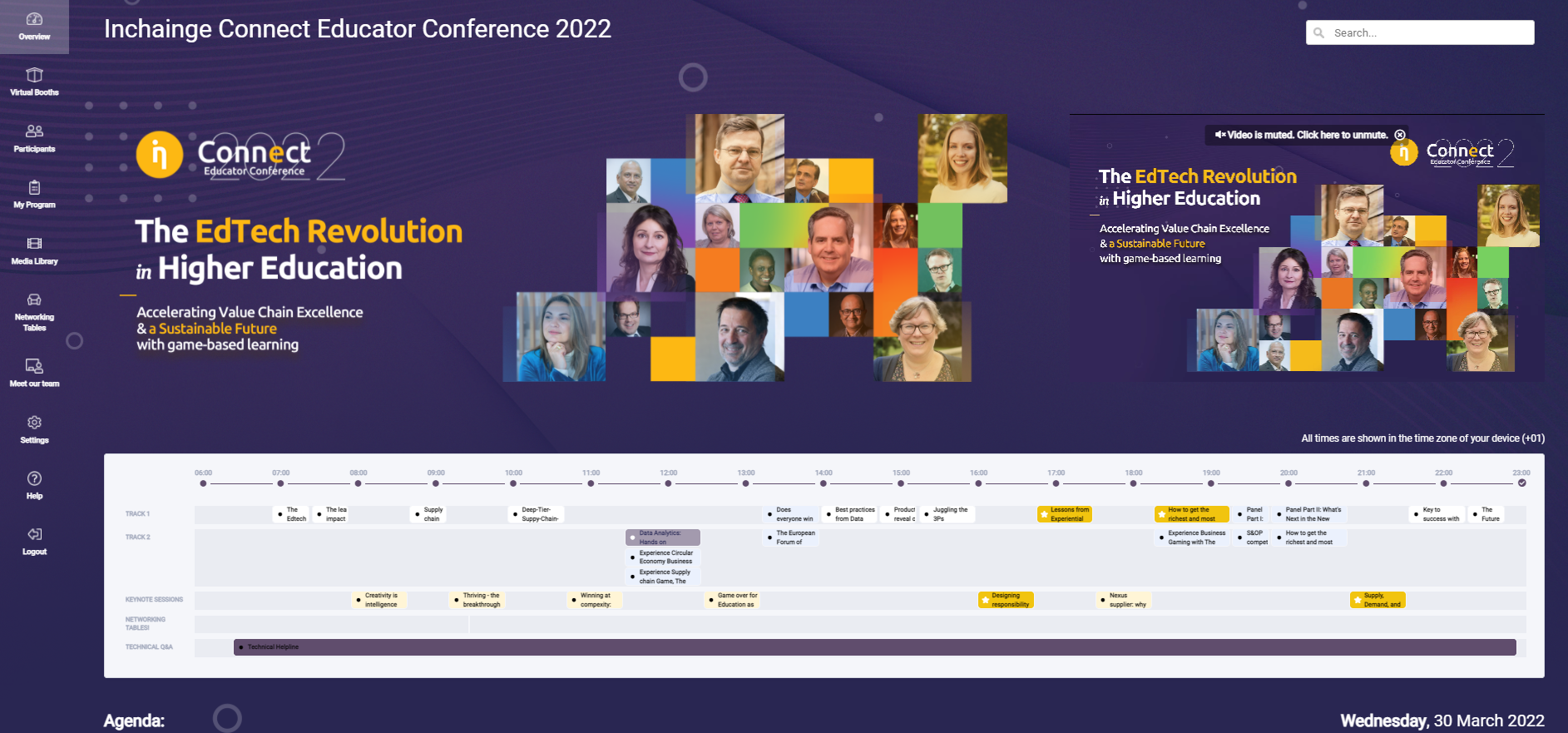
An Introduction to EdTech Revolution
The conference kickstarted with Corine van der Sloot introductory talk on ‘The EdTech Revolution in Higher Education’. As the year 2021 marked the unprecedented rise of virtual, video-conferencing education, educators found themselves on a verge of a whole new revolution. How could they prepare themselves for this change? What kind of approach would be suitable for their students’ future? Throughout the talk, Corine shed light upon such relevant questions and she was also joined by the participants who made the session wholesome through their valuable inputs.
Keynote Speakers define the transition of education and the future of EdTech
Dr Eveline van Zeeland brought into the limelight one of Einstein’s most famous quotes, “Creativity is intelligence having fun”. In her talk ‘Innovative Learning in 2030’, Dr Zeeland addressed an interesting thought about how creativity, intelligence, and fun form an intersection at the core of which lies an attitude to learn by experience. She took us through Leonardo De Vinci’s journals which were adorned with sketches and notes to give us an example of how journaling can be the best (and important) way to document imagination.
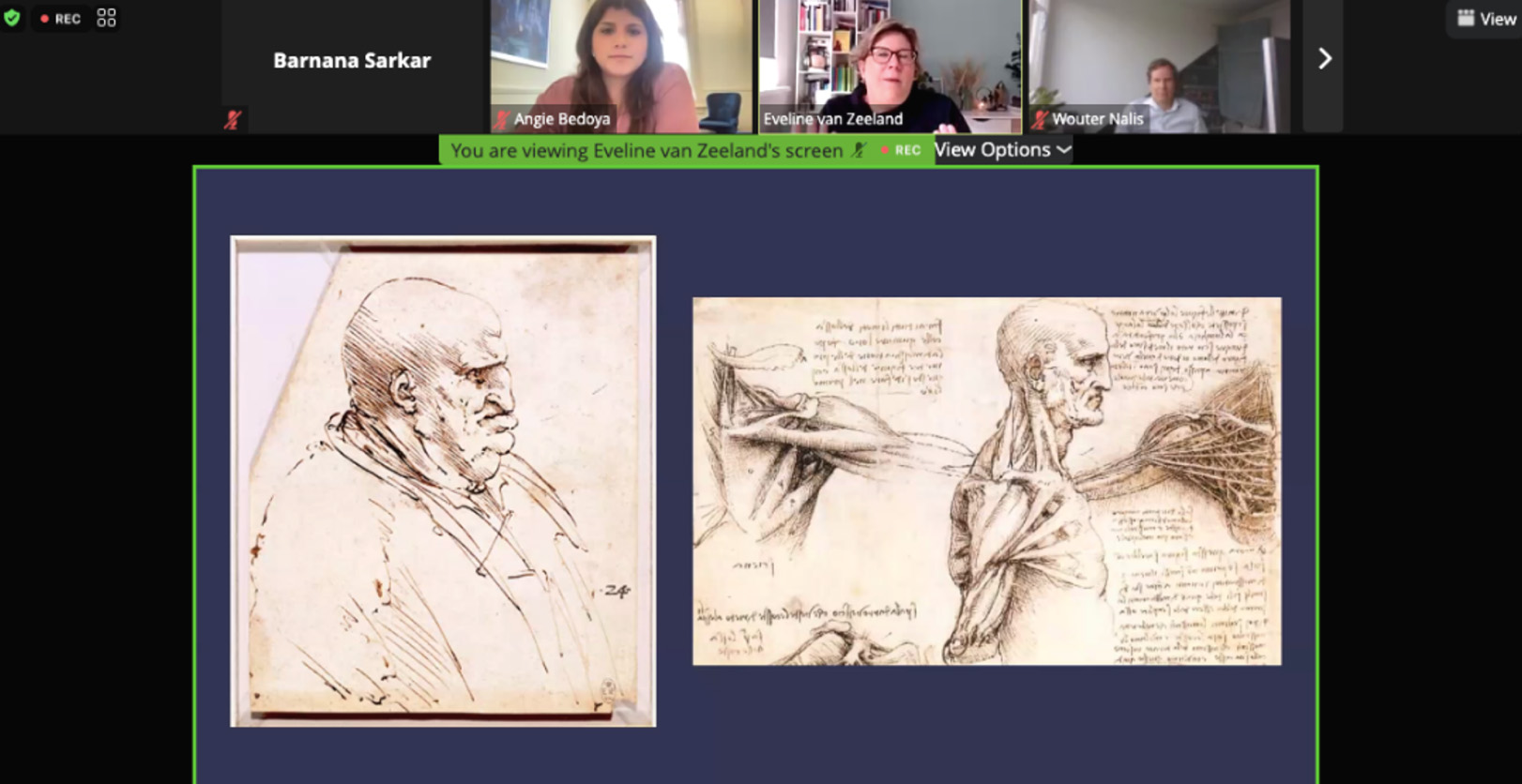
Caption: Dr Zeeland showcases De Vinci’s journals to explain the art of journaling
During the course of the conference, we were joined by Wayne Visser who currently serves as head tutor, fellow, and lecturer at the University of Cambridge Institute for Sustainability Leadership. In his talk about ‘Thriving – the breakthrough movement to regenerate nature, society and the economy’, Dr Visser asked us some very pertinent questions about sustainability. He called to attention one of Sir David Attenborough’s most famous quotes,
“A species can only thrive when everything else around it thrives too.”
He spoke about the 6 transitions of thriving and he made us ponder about moving:
– From breakdown to breakthrough: How does the science of thriving help us understand global systems change?
– From solutions to synergies: How does innovation happen on the journey to thriving?
– From inspiration to integration: How can companies practically implement thriving?
– From lagging to leading: What does leadership look like in a world transitioning to thriving?
Dr. Visser concluded his session with a moving poem, and we have to say it does make you “plant a seed and humbly say, I changed the world today”.
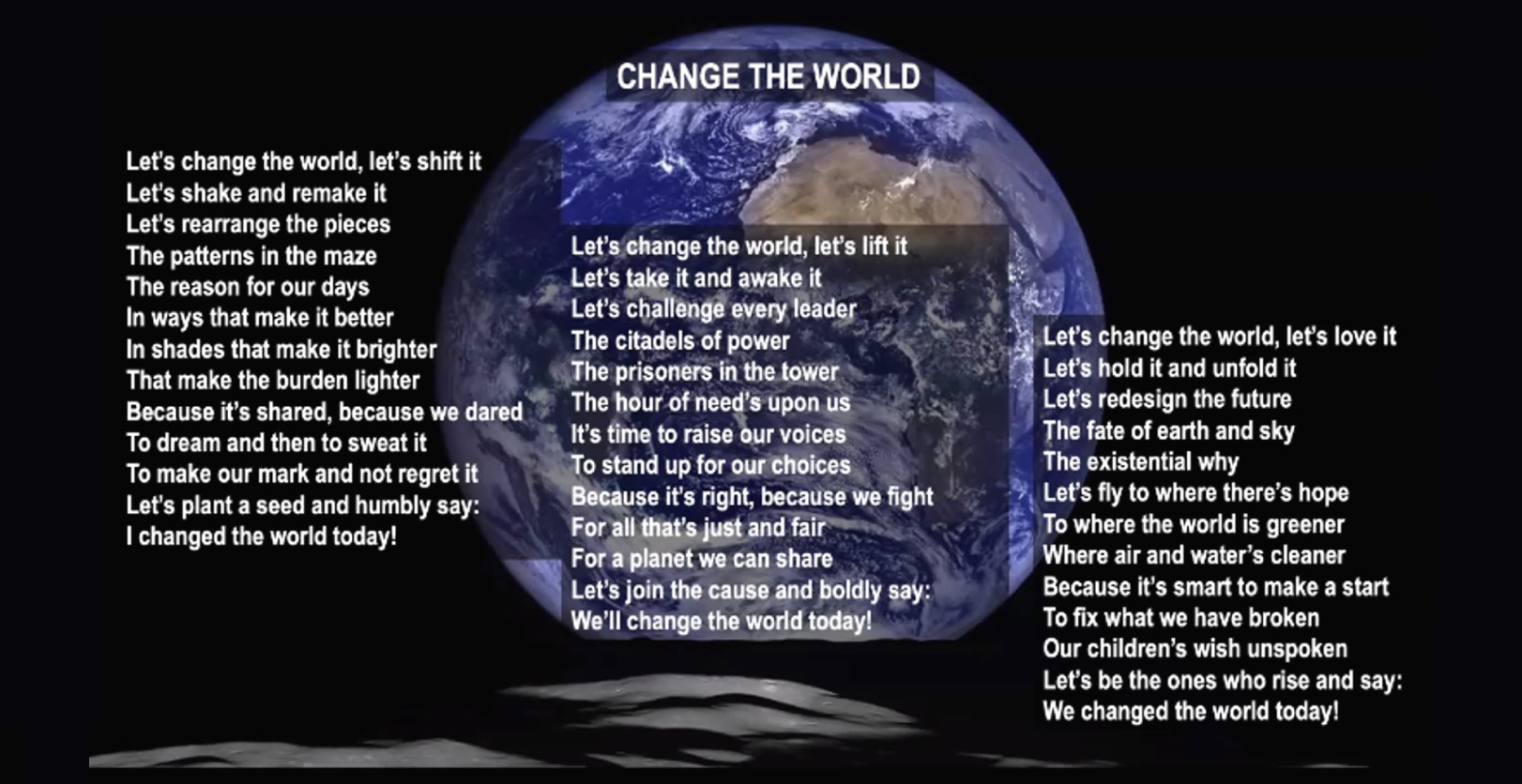
Caption: Dr Visser’s poem resonated with us.
Next, we asked the question with Dr Sara de Freitas (Executive Director, Study Group) – ‘Game over for Education as we know it?’ A thought leader in the field of game-based learning and recognized as one of the most Influential Women in Technology, Dr. Freitas’s talk took us to an interesting journey. Her presentation dived deep into the six main trends of education and how they have been responsible for the Quiet Education Revolution that has been happening over the last fifty years.
Her topic was engaging for our participants because it was very close to a generation that either grew up as digital natives or converted to digital migrants. She also addressed a relevant concept about how game-based learning will become more dominant not just to support the design of learning but also for the delivery of learning.
Continuing from Dr. Freitas, we were joined by Julia Wolny who is a Professor in Digital Innovation and Responsible Experience Design. In her talk about ‘Designing responsibility into circular experiences’ Prof. Wolny asked a provoking question “What is the role of experience design in the transition towards circularity?” Circular economy models, thus far, focus mainly on materials and resources with limited consideration of the customer experience design and its market consequences. To make this connection organisations must design experiences to give users an opportunity to be responsible throughout their involvement with a service or product. Drawing on research and examples, Prof. Wolny explored three ways in which responsibility can be applied to experience design practice through
(1) communication,
(2) care and
(3) optimization
The Great Reveal at last happened!
We were elated to reveal our newest business game on sustainability, the Triple Connection. Presented by one of the founders of Inchainge, Egge Haak, the Triple Connection zooms in on the main challenges of managing sustainable trade-offs in all three ‘P’ pillars (People, Planet, Prosperity) with a limited budget. As a part of the reveal, we dived further into the topic of sustainability.
We were joined by our expert panelists Dr. Andrea Sordi, Dr. Denyse Julien, and Peter van Grinsven who addressed some of the key concepts and frameworks currently used to capture Sustainability in Value Chain Management. One of the key concepts, which is also crucial to the Triple Connection, is ‘Juggling the 3 Ps’.
Although the 3Ps (People, Planet & Prosperity) – as concepts – have been around for quite some time, companies are yet to come to terms with their widespread application. However, on a parallel scale, there has also been immense development in companies actually considering the 3Ps in their long-term strategies. Our panelists opened a forum to not only address the complexities of decision-making but also talk about the importance of juggling the 3Ps and the impact on corporate strategy and value propositions.
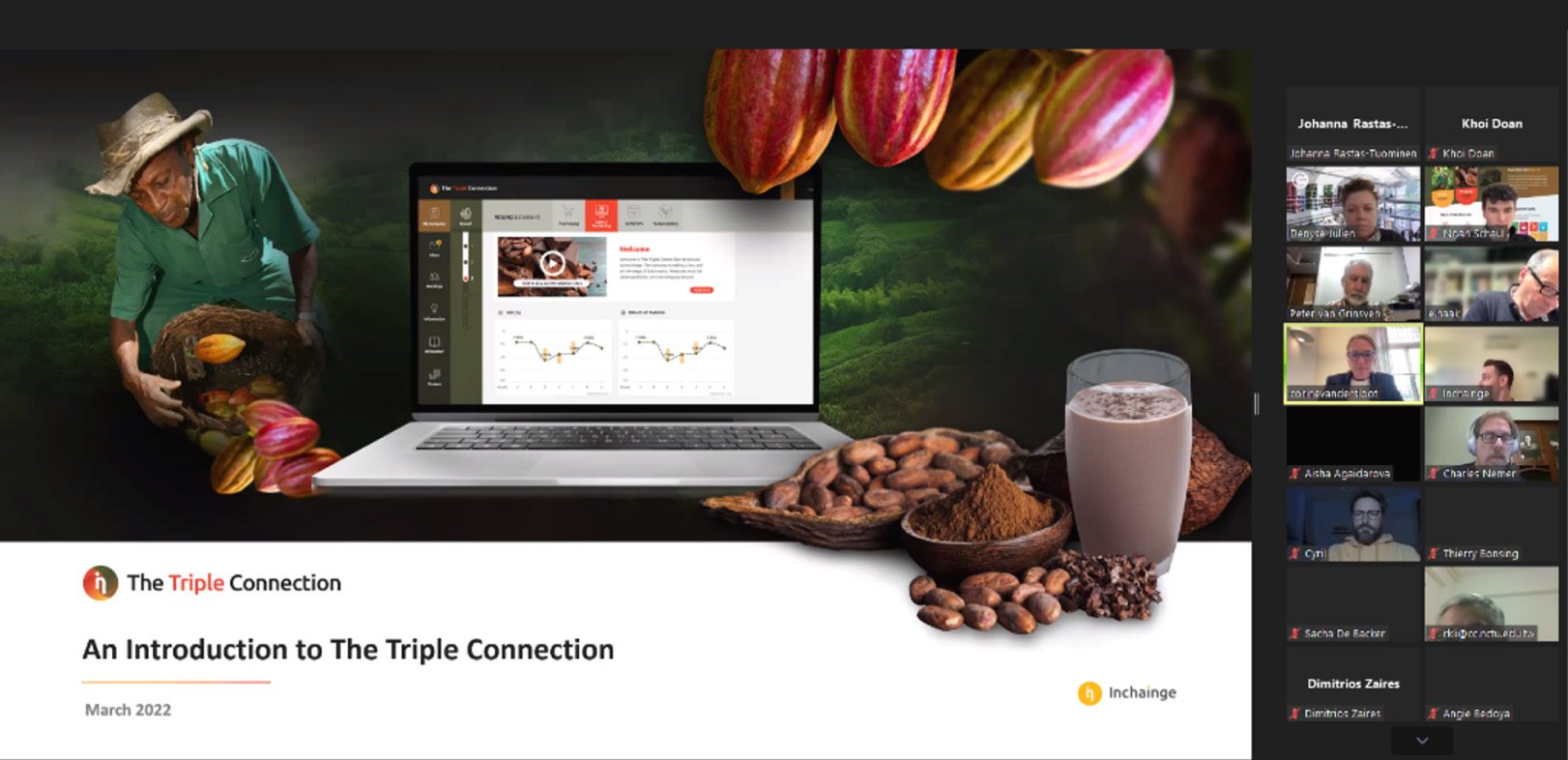
And some more interesting topics…
What creates the perfect combination to get a good level of business understanding, analysis, and use of data? We were joined by Gaby Neumann (Professor, TH Wildau) and Aicha Manuela-Martijn (Lecturer, Hogeschool Rotterdam) who took walked us through the ‘Best Practices from Data Analytics Courses’. During their session they focused on one of Inchainge’s business simulation games, ‘The Fresh Connection’, to talk about how data can impact the supply chain.
As we moved forward, we also circled back to some topics that we had learned earlier. Ed Weenk (MSc PDEng and an experienced lecturer, corporate advisor and workshop and training facilitator) reflected upon some of the ‘best ways to introduce students to difficult and complex topics like Value Chain Management’.
Igor Lopez (Industrial Engineer), Oliver Ntenje (Lecturer, HAN University of Applied Sciences), Felisa Preciado Higgins (Associate Dean), Bjorn Claes (Senior Lecturer in Operations Management, The Open University Business School), and Christopher Boone (Assistant Professor of Supply Chain Management, Mississippi State University) joined us for an educator panel on the topic ‘What’s next for the New Normal?’
What is the future of education like? Are we ready to ride the road to the New normal? How can we adapt ourselves better? What are the best practices? Our panel of experienced educators brought forward their expertise to discuss the transition to edtech.
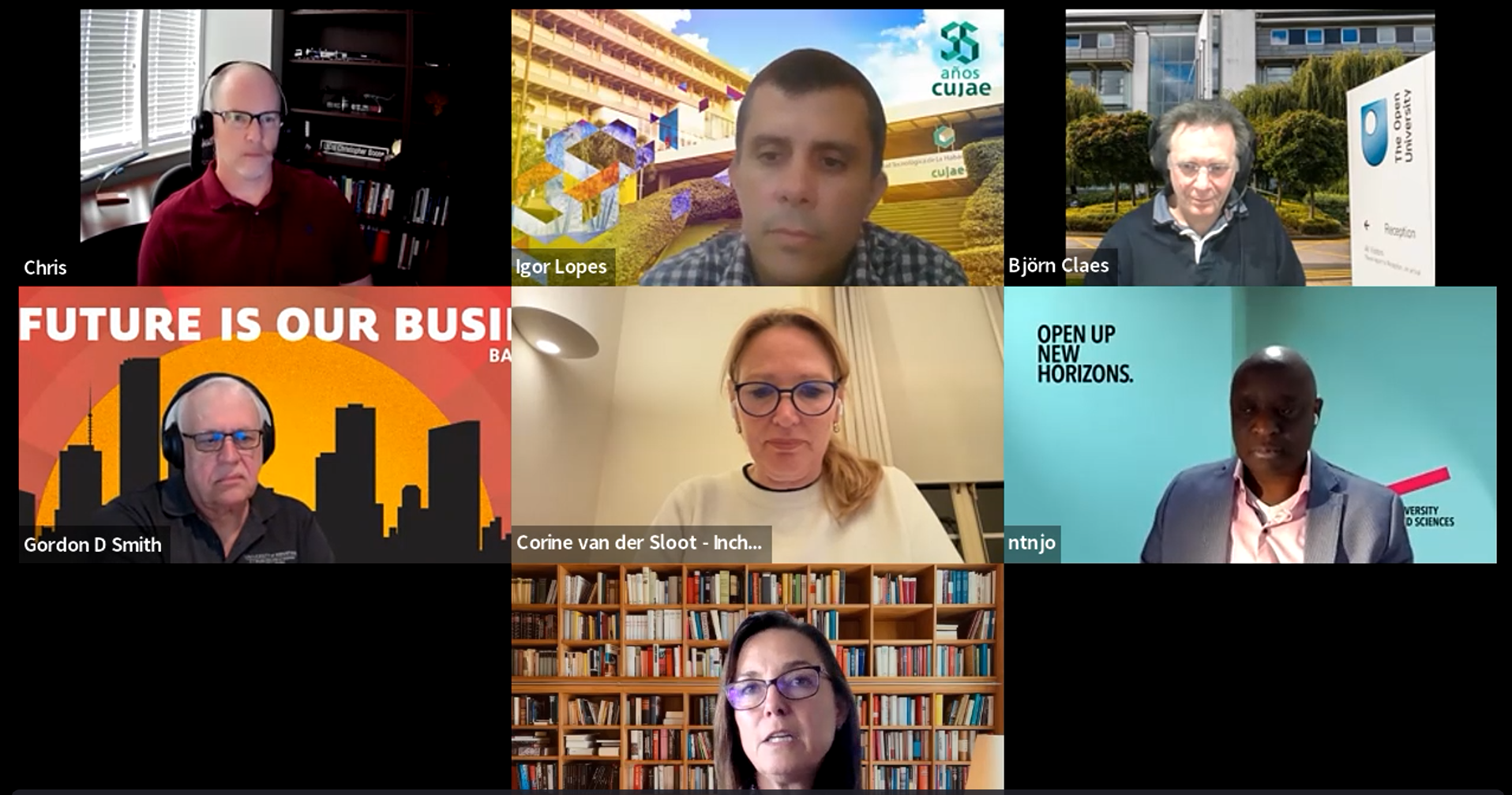
Caption: Educator panel on the topic “What’s next for the New Normal?”
During the discussion, Gordon D. Smith, Bauer College of Business University of Houston in the Educator Panel mentioned said,
“When my students start applying for a job in Supply Chain Management, after having had the experience with The Fresh Connection in one of my courses, they already speak the language of their future employer”!
Conclusion
We hope that this conference was of value to all those who participated and we would like to know what did you carry from it to teach your students about the future of education.
Here are some resources that were mentioned during the conference:
- Check out our webpage for our new business game, The Triple Connection!
- Interested in sustainability? Register now for our mini-conference on the quest towards sustainable value chains.
- Discover our free harvard-style teaching cases on global issues.
And we want to thank to all keynote speakers, participants, and moderators who made the day an absolute success.
